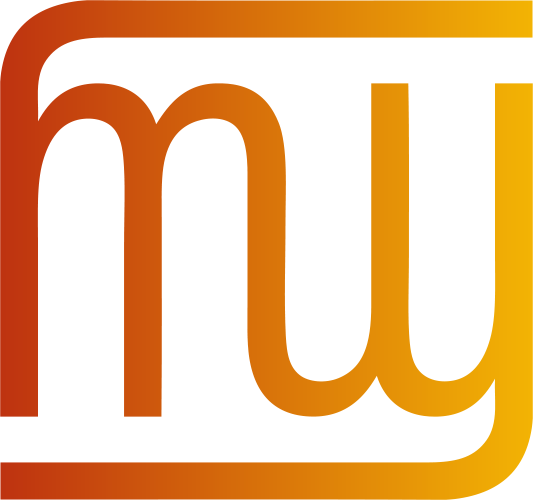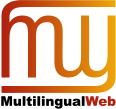 The W3C Internationalization (I18n) Activity works with W3C working groups and liaises with other organizations to ensure Web technologies work for everyone, regardless of their language, script, or culture.
The W3C Internationalization (I18n) Activity works with W3C working groups and liaises with other organizations to ensure Web technologies work for everyone, regardless of their language, script, or culture.
From this page you can find articles and other resources about Web internationalization, and information about the groups that make up the Activity.
Read also about opportunities to participate and fund work via the new Sponsorship Program.
What the W3C Internationalization Activity does
Selected quick links
Selected quick links
Selected quick links
Best Practices for Multilingual Linked Open Data Community Group formed

During a breakout session held at the MultilingualWeb Workshop in Rome it was decided to form a W3C Community Group to push forward the concept of Best Practices for Multilingual Linked Open Data. This group has now been formed and there are already 24 participants. See the group home page.
The group plans to crowd-source ideas from the community regarding best practices for producing multilingual linked open data. Key topics for discussion are naming, labeling, interlinking, and quality of multilingual linked data, but there may be others. Use cases will be identified to motivate discussions. Participation both from academia and industry is expected. The main outcome of the group will be the documentation of patterns and best practices for the creation, linking, and use of multilingual linked data.
You can join the group with either a full W3C member account or by getting a W3C Public Account. Over the coming weeks Felix Sasaki, Jose E. Gayo and Jorge Gracia will work on a roadmap, publication plan and strategy for the group. Any queries can be directed to Dominic Jones.
Internationalization Tag Set (ITS) 2.0 Working Draft updated
The MultilingualWeb-LT Working Group has published an updated working draft of Internationalization Tag Set (ITS) 2.0.
The draft reflects changes since the last call publication 6 December 2012 and asks for feedback on the remaining open issues.
ITS 2.0 provides metadata to foster the adoption of the multilingual Web.
W3C Workshop on eBooks & Internationalization announced
eBooks & i18n: Richer Internationalization for eBooks on 4 June 2013 in Tokyo, Japan, will investigate international functionality that needs to be added to the Open Web Platform. The Open Web Platform includes core W3C technologies such as HTML, CSS, SVG, XML, XSLT, XSL-FO, PNG, RDF, and many more, that are used extensively in eBooks and eBook production.
The goal is to make the various eBook reading platforms suitable for electronic books that use the printing and typesetting traditions of different cultures. If you are interested in participating, please submit a position paper by 30 April 2013. See the Call for Participation for details.
Indic Layout Task Force created
An Indic Layout Task Force has just been announced, as part of the W3C Internationalization Activity. Similar to the very successful Japanese Layout Task Force, the Indic group will provide input to the W3C Open Web Platform related to Indic Languages and Layout.
This task force will gather and integrate feedback from the participating members about the needs and technical feasibility of Indic requirements, and will report the results of its activities as a group back to the Internationalization Core Working Group, as well as to other relevant groups and to the W3C membership and community.
The chair of the Task Force is Swaran Lata, the contact person at the Indian Office of W3C is Somnath Chandra, and the Staff Contact is Richard Ishida. See the home page for more information.
In order to participate in, or follow, the work of the Task Force, please subscribe to the mailing list of the Task Force. You therewith also become a member of the Internationalization Interest Group.
CLDR Version 23 Released
The Unicode Consortium has released CLDR 23, which contains data for 215 languages and 227 territories—654 locales. This release focused primarily on improvements to the LDML structure and tools, and on consistency of data. It includes substantially improved support for non-Gregorian calendars (such as the Japanese Imperial calendar used extensively in Japan). The data and structure has also been modified to easily permit changing between 12 and 24 hour formats, and between 2 digit and 4 digit years. The new Unicode character is used for the Turkish Lira, and information is provided for currencies that round to 5 cents (or other subunits) in cash transactions. For most languages that use non-Latin scripts, characters in the language’s script now collate before those in other scripts (including A-Z). Language-specific letter-casing changes (Lower, Upper, Title) have been added for Azerbaijani, Greek, Lithuanian, and Turkish. Keyboard data has also been updated for Android. Also, as of this release, the LDML specification is split into multiple parts, each focusing on a particular area.
Metadata for the Multilingual Web – Usage Scenarios and Implementations Draft Published
The MultilingualWeb-LT Working Group published a First Public Working Draft of Metadata for the Multilingual Web – Usage Scenarios and Implementations. This document introduces a variety of usage scenarios and applications for the Internationalization Tag Set (ITS) 2.0, ranging from simple machine translation or human translation quality check to training for machine translation systems or automatic text analyis. Many of the underlying implemementations will be showcased in the upcoming W3C MultilingualWeb Workshop 12-13 March in Rome.
ECMAScript Internationalization API Specification approved in December
We omitted to mention, back in December, that ECMAScript announced a new standard that better supports a user’s language and culture for applications written in JavaScript (standardized as ECMAScript).
Until now, it has been very difficult for web application designers to do something as simple as sort names correctly according to the user’s language. The new standard ECMA-402 changes this. It provides:
- string comparison for sorting (such as for Swedish, where “ö” is a separate letter that sorts after “z”),
- number and currency formatting (such as “1.234,56 €” for a German language euro presentation, or the following choices for a Serbian language USD presentation: 12.345,12 US$, 12.345,12 USD or 12.345,12 америчких долара),
- date and time formatting capabilities (such as 2012年12月12日 for a Japanese language date, or for a French date: mercredi 12 décembre 2012).
For the first time, applications can choose the language and tailor the functionality to their needs. The standard complements the ECMAScript Language Specification, also published by Ecma as ECMA-262, which defines the core of JavaScript in web browsers, servers, and other software systems.
ECMA-402, ECMAScript Internationalization API Specification, is available free of charge from the Ecma International website. See also An introduction to the standard.
New Unicode FAQ on Private-use Characters, Noncharacters and Sentinels
A new FAQ page devoted to the topic of private-use characters, noncharacters, and sentinels has been posted on the Unicode web site. This FAQ aims to clear up confusion about whether noncharacters are permitted in Unicode text, and how they differ from ordinary private-use characters. The recently published Corrigendum #9: Clarification About Noncharacters makes it clear that noncharacters are permitted even in interchange, and the new FAQ page addresses some of the fine points about their usage and about differences from other types of Unicode code points. The brief mentions of noncharacters in other FAQ pages have also been updated accordingly.
Are you unclear about what Unicode “noncharacters” even are? The new FAQ page also answers basic questions about noncharacters and private-use characters, and provides a bit of history about how they came to be part of the Unicode Standard.
For review: 4 articles about bidi text in HTML
Comments are requested on the following proposed updates to material on the Internationalization site, prior to final publication. NOTE THAT the articles are in a temporary location, and will be moved to their final location after the review.
Text direction and structural markup in HTML
This article has been created from material formerly in the tutorial “Creating HTML Pages in Arabic, Hebrew and Other Right-to-left Scripts” and augmented with information about new HTML5 markup constructs that are beginning to see adoption. It should be regarded as a new article, focusing on applying bidi markup to document- and block-level situations and to forms.
What you need to know about the bidi algorithm and inline markup
This is an update of an existing article. It has been almost completely rewritten. The most significant changes are the new parts describing how to apply the new HTML5 constructs which are beginning to see adoption. Additional changes will be needed as HTML5 bidi markup is finalised over the coming months. The article also proposes a simpler way to approach markup of bidi text, particularly useful for those with less experience, that relies less on a deep understanding of the issues involved.
Visual vs. logical ordering of text
This is a new article created from material that has been removed from the previously mentioned material. It was removed into a separate article because visual ordering is much less important these days, and to avoid duplication. Only a few changes have been made to the content itself.
Creating HTML Pages in Arabic, Hebrew and Other Right-to-left Scripts
This tutorial has been modified to bring it in line with the current tutorial format. Rather than contain duplicate content, it now introduces the novice to key concepts and points off to useful further reading in an organized fashion. It has been completely rewritten.
Please send any comments over the next two weeks to www-international@w3.org (subscribe).
We hope to publish a final version shortly after that.
Program published for MultilingualWeb Workshop in Rome!

The program has been published for the upcoming W3C MultilingualWeb Workshop: Making the Multilingual Web Work in Rome, 12–13 March 2013.
Mark Davis and Vladimir Weinstein of Google will deliver the keynote presentation, “Innovations in Internationalization at Google”. This will be followed by one and a half days of talks on various aspects of what it takes to make multilingualism work on the Web, plus an afternoon of discussion-oriented breakout sessions that focus on best practices for various aspects the multilingual Web. Speakers will come from organizations like Adobe Systems, SAP, Yandex, the Spanish Tax Agency, the U.N. Food and Agriculture Organization, Microsoft, Lionbridge, SDL, the European Commission, and leading universities and research institutions from around the world.
The program will also feature a showcase of implementations of the forthcoming ITS 2.0 specification that will allow attendees to get a sneak peak at how this specification will impact and support multilingual requirements on the Web.
See the Call for Participation for details about how to register for the workshop. Participation in the workshop is free.
Important: The deadline for registration is 8 March, but available attendance slots are filling up fast and are expected to run out before the deadline. So please be sure to register soon to ensure that you can attend.
The MultilingualWeb workshops, funded by the European Commission and coordinated by the W3C, looks at best practices and standards related to all aspects of creating, localizing and deploying the multilingual Web. The workshops are successful because they attracted a wide range of participants, from fields such as localization, language technology, browser development, content authoring and tool development, etc., to create a holistic view of the interoperability needs of the multilingual Web.
We look forward to seeing you in Rome!